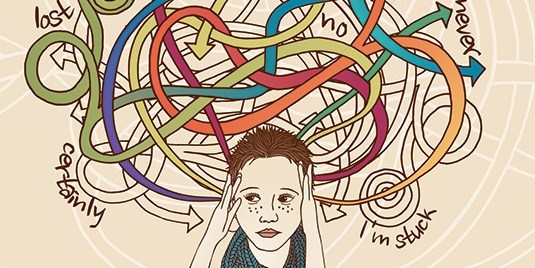Another term for Rumination is ‘Chewing the Cud.’ It is when someone deeply considers a thought about something. Normally the focus is on past events. A preoccupation with past failures. These could be mistakes, actions taken or missed, perhaps even lost opportunities. It’s unhealthy obsessive thinking. This is also considered a symptom of depression. Not surprisingly, the pandemic has escalated depression in America.
This is something I personally struggle with as well. It is the internal self-guessing and asking ‘what if’ scenarios.
The American Psychological Association provides three common reasons for this bossiness.
- the belief that by ruminating, you will gain insight into your life or a problem.
- having a history of emotional or physical trauma
- facing ongoing stressors that cannot be controlled.
The last one is interesting. A hard acceptance is having things out of our control. I have touched base on the Stoic philosophy, realizing we can only control our personal reaction, rather than any given situation. Check out my article Negative Visualization – Stoicism.
We need to break this cycle.
Ten tips to stop the Rumination Cycle.
- Distract Yourself
- Look around, and choose something else to do.
- Plan to take action.
- Take that negative thought and plan to take action against it.
- Take action.
- Having a plan in place, act on it.
- Question those thoughts.
- Is that thought an accurate account? Try to remove the emotion and think critically.
- Readjust the life goal.
- While we may strive to be the ideal perfection, it is an expected goal. Remove those goals that are set up to fail, and focus on the more realistic mile markers. Once attained, celebrate.
- Work on enhancing your self-esteem.
- The lack of self-esteem and rumination are linked, in many ways. Find something to enhance your awareness regarding your self-worth. This is about your view on yourself, not outside acceptance.
- Meditate
- Clearing the head to a relaxed, emotionally calm state can help a lot. This goes back to tip number four. Remove the emotion, clear the negative thoughts, and break the loop.
- Understanding the triggers.
- This is my view is the biggest tip. Keep something to have the ability to note. When you begin to ruminate, make some notes on it. What environment are you in? Who is around you? What action were you just performing? Music or other Media in play? Keep track of these and identify the precursor (before) the rumination begins. Once identified, remove those variables.
- Find a friend to talk too.
- When we ruminate, we isolate ourselves into our own thoughts. Find a trustworthy friend willing to talk it out. The friend can provide insight and feedback from another angle. He or she may see the forest from the trees.
- Therapy.
- We live in a completely different world than our grandparents. We are bombarded with more information, stress, and unrealistic expectations thrown at us. Considering therapy is not a crutch. It is a tool to be used, if and when available
Be sure to subscribe to my YouTube channel where more content and educational videos can be found.

Matt Cole has high regard for knowledge share. He has a desire to share critical thinking and information. With a Masters in Information Technology and a wide array of certifications, while not working full-time, he wishes to knowledge share through providing insight, information organization, and critical thinking skills.
#KnowledgeShare | Matt Cole | #infobyMattCole

